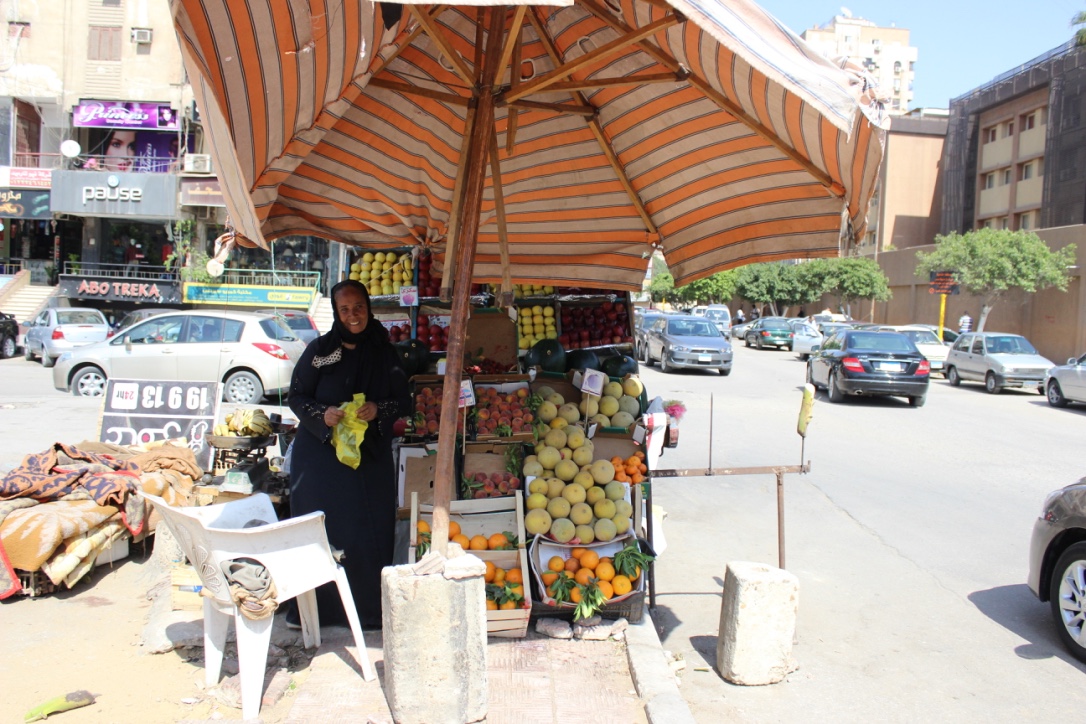Women ‘In Labor’
By: Joya El Aggar
Follow @joyaelaggar
Women in Upper Egypt and the countryside continue to have restricted access to education and many are often forced out of school.
According to a 2011 survey carried out by the Egypt Network of Integrated Development (ENID), around 11 percent of girls in rural areas never attended school, four times the number for men.
While there is an increasing number of success stories of women breaking gender stereotypes and succeeding in various fields, the reality is a bit more bleak for the women in Upper Egypt.
For them, employment does not automatically equate empowerment.
Ingy Saber, 19, from Temma in Sohag, currently works in Cairo as a housekeeper.
While she used to go to school as a child, her father forced her to drop out at age 10 and work as a nanny.
“My father used to work as a potato seller but after my sister and I hit 10 years old, he stayed at home and sent us to work instead.”
In many cases, working women in Upper Egypt are exploited by the men in their families. This has forced their migration to urban areas.
Saber, who has one sister and two brothers, is responsible for paying her family’s rent, even though her two older brothers get daily wages from their work.
“I used to ask about my parents and siblings when I first started working but now I stopped missing them. I hate going back to my father’s house. I send them the money at the beginning of each month and that’s it.”
She is not alone.
Others who suffer as she has often turn to marriage as an escape.
But this often comes with its own set of problems, as well. Every suitor asks that the women quit their work.
“I can’t leave my work. Who will be responsible for my family? How I will live? If someone wants to marry me, they have to accept my job,” said Saber.
Seven years ago in Assiut, Mariam Ashraf, 27, married Amgad, 29.
After her husband decided to stop working, Ashraf had to begin working for 10 hours a day to provide not only for the family, but also for his drug addiction.
“I have to work to get him money and to get food for my children, otherwise they will die starving.”
If she refuses, he beats her.
Ashraf added that she has no choice but to stay in her husband’s house because it is the only domicile where she can raise her children.
“I’m doing my best to get everything for my children and get them good education in order not to grow up and be useless like their father.”
Basma Barty, 62, the former head of El Salam Language School in Assiut, says that women are the building blocks of the community.
“Women are equal to men in every aspect in life. We need equality and someday we will get it,” she said.
Barty added that the challenge is how to persuade parents who think there is no benefit in education while work provides financial rewards.
“Parents do not understand the value of education. This is the main problem in the rural areas,” said Barty.
A number of programs have been set up in Assiut to highlight the value of education, especially among women.
In 2003, the Association of Upper Egypt for Education and Development (AUEED) started a project called the Education Development in 20 Governmental Schools.
The project, funded by the Egyptian Swiss Development Fund (ESDF), is aimed at increasing the rate of enrollment in the targeted project schools, decreasing the rate of school dropouts across Sohag, modifying children’s attitudes towards learning, supporting and providing logistics for activities implementation with 4000 students and building the capacities of 700 school teachers and headmasters.
The AUEED also launched the Gender Development Project in Assiut and Sohag in 2007; it is funded by Swiss Catholic charity groups Fastenopfer and Caritas.
This project specifically seeks to put women on equal footing with men in education, health, access to economic opportunities, social status and civic practices.
But for some women, seeking job opportunities elsewhere is a means to leave their family homes.
Marina Essmat, 21, also from Temma in Sohag, has been working as a housekeeper in Cairo for nine years.
While her job allows her to save up for her needs, she sends half her monthly salary to her family in Upper Egypt.
“I started to work when my father took me out of school. At first I was sending my family all of my salary but now I started to take half of it for myself because I will not work for them for the rest of my life.”
Essmat enrolled in a school in Cairo once she started working there. She does not have to attend classes and instead, studies on her own for every exam.
“I don’t want to marry an illiterate man, I don’t want t o live my mother’s life,” she said.
“I believe that education will give me a better job opportunity when I graduate from business college after school. I will be able to meet an educated man to marry.”
